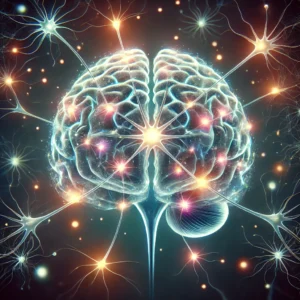 Functional Neurology and Neuro-Optometry: Unlocking the Brain’s Potential
Functional Neurology and Neuro-Optometry: Unlocking the Brain’s Potential
The Power of Neuroplasticity in Healing and Performance
One of the most exciting aspects of modern neuroscience is the recognition that the brain is not static—it is always changing. This concept, known as neuroplasticity, has revolutionized our understanding of how we can recover from brain injuries and optimize brain function.
Functional Neurology and Neuro-Optometry are two cutting-edge disciplines that leverage neuroplasticity to help individuals recover from neurological dysfunction and enhance cognitive and motor abilities.
The Role of Functional Neurologists
Functional Neurologists specialize in restoring brain function through non-invasive, evidence-based therapies. They assess neurological pathways and develop targeted rehabilitation strategies to improve cognitive and motor abilities. These therapies may include:
- Vestibular Rehabilitation: Exercises that improve balance and coordination.
- Neuro-Motor Training: Stimulating movement pathways to restore motor function.
- Cognitive Therapy: Enhancing memory, focus, and executive function.
- Autonomic Nervous System Regulation: Addressing dysfunctions like dizziness, headaches, and brain fog.
To find a certified Functional Neurologist near you, visit the ACNB Doctor Search.
The Gut-Brain Connection: Why Digestion Matters for Brain Function
The gut-brain axis plays a major role in cognitive function, mood regulation, and neurological repair. Functional Neurology acknowledges this connection by addressing issues such as gut inflammation, nutrient absorption, and microbiome health.
Practitioners Who Can Help
- Functional Neurologists – Use targeted therapies to restore neural function.
- Neuro-Optometrists – Help with visual processing, balance, and post-concussion recovery.
- Functional Nutritionists – Optimize digestion and nutrient absorption for brain function. (Cavin is a Certified Functional Nutrition Councilor specializing in neurology and patient empowerment. Learn more and schedule a consult with Cavin here.
- Vestibular Therapists – Retrain the brain for stability and coordination.
The Role of Neuro-Optometrists
Neuro-optometrists evaluate and address a range of visual dysfunctions resulting from neurological impairments, including:
- Binocular Vision Disorders: Issues with eye alignment and coordination, leading to double vision or depth perception problems.
- Visual Processing Disorders: Difficulties in interpreting visual information, affecting reading, balance, and spatial orientation.
- Visual-Motor Integration Disorders: Challenges in coordinating visual input with motor actions, impacting activities like handwriting and sports.
Neuro-Optometric Rehabilitation
 This specialized form of therapy aims to retrain the brain and visual system to function cohesively. Customized treatment plans may include:
This specialized form of therapy aims to retrain the brain and visual system to function cohesively. Customized treatment plans may include:
- Therapeutic Lenses and Prisms: To modify light entry and improve visual processing.
- Vision Therapy Exercises: To strengthen eye coordination, focusing, and tracking abilities.
- Sensory Integration Techniques: To harmonize visual input with other senses, enhancing overall neurological function.
The Mind-Eye Institute: Pioneering Neuro-Optometric Care
A leading example of innovation in this field is the Mind-Eye Institute, founded by Dr. Deborah Zelinsky. The institute specializes in neuro-optometric rehabilitation, focusing on how light affects brain function. Their approach includes:
- Advanced Assessments: Utilizing cutting-edge technology to measure reactions and responses to light entering the retina.
- Customized Interventions: Prescribing individualized lenses and therapies to stimulate specific retinal areas, thereby enhancing visual and neurological performance.
- Innovative Techniques: Developing methods like the Z-Bell Test® to evaluate eye-ear coordination and improve sensory integration.
Conclusion
Neuro-optometrists play a crucial role in diagnosing and treating visual disturbances linked to neurological conditions. Through personalized rehabilitation strategies, they help patients regain visual efficiency and enhance their overall well-being.
Institutions like the Mind-Eye Institute lead the way in integrating neuroscience with optometric care, offering hope and improved quality of life to those affected by neurological visual impairments.
For more information on neuro-optometric rehabilitation and to find a practitioner, consider visit the Neuro-Optometric Rehabilitation Association’s website.

